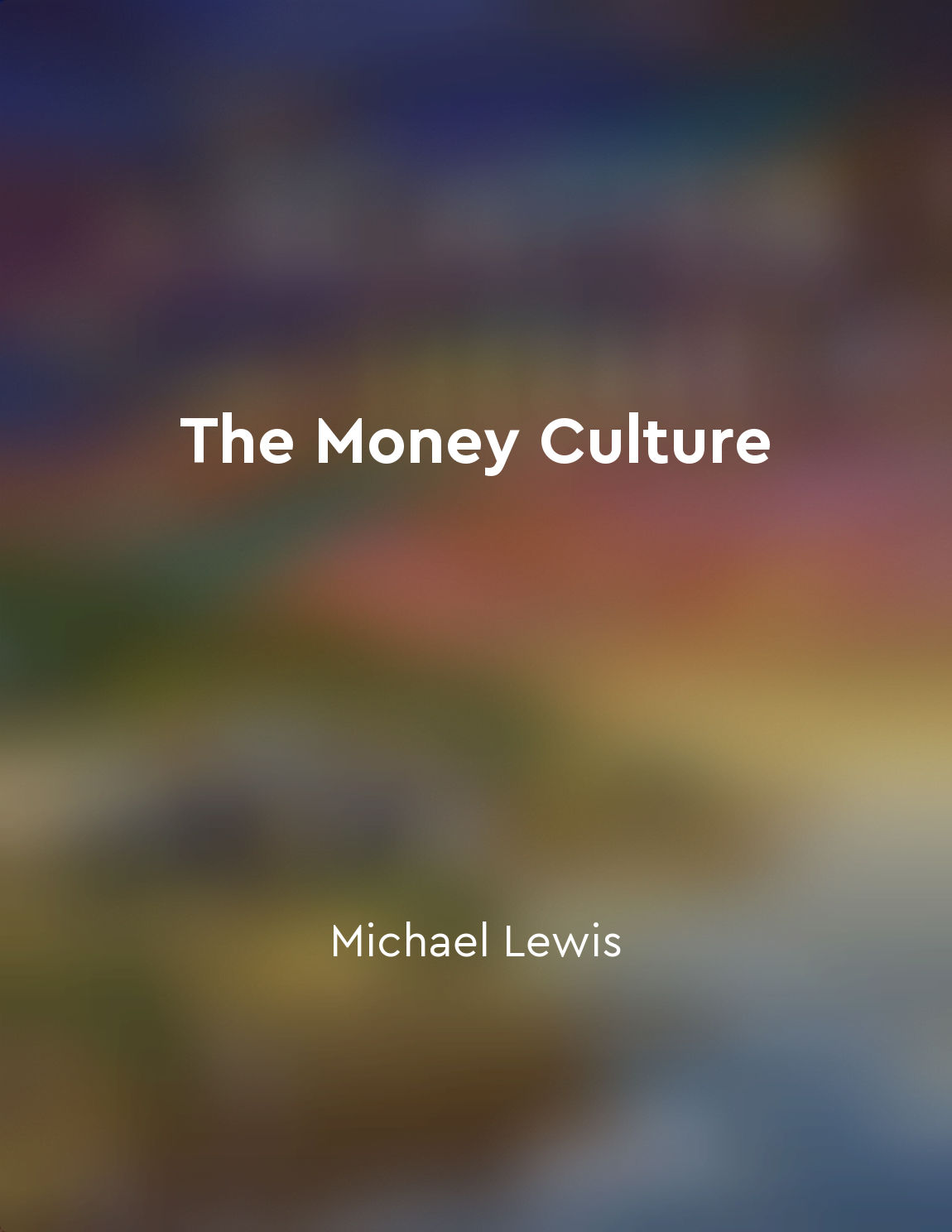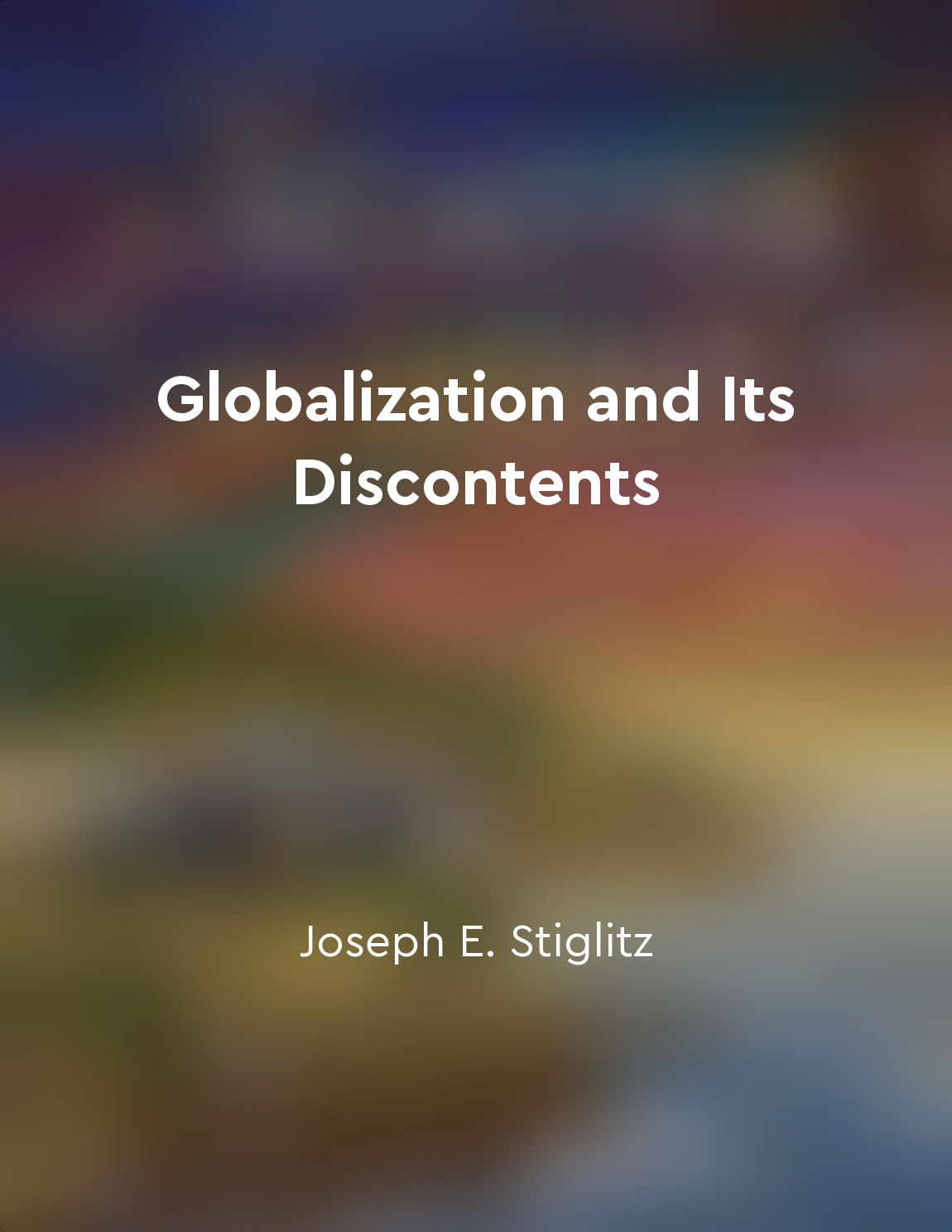Globalization benefits the elite at the expense of the working class from "summary" of The Death of the West by Patrick J. Buchanan
Globalization has been a boon for the elite, as they have reaped the rewards of increased profits and expanded markets. However, the working class has not fared as well in this new globalized economy. While the elite have seen their wealth and power grow, the working class has faced job losses, stagnant wages, and increased competition for employment. The outsourcing of manufacturing jobs to countries with cheaper labor has been a particularly damaging consequence of globalization for the working class. Companies have sought to cut costs by moving production overseas, leaving many working class individuals without stable employment. This has led to a decline in job security and a weakening of labor unions, which has further disadvantaged the working class. Additionally, the influx of cheap labor from other countries has put pressure on wages for working class individuals. With more people competing for the same jobs, employers have been able to keep wages low, despite increases in productivity and profits. This has further widened the gap between the elite and the working class, as the former have seen their incomes rise while the latter have struggled to make ends meet. Furthermore, globalization has allowed the elite to exploit loopholes in tax laws and regulations to further increase their wealth. By shifting profits to tax havens and taking advantage of offshore banking, the elite have been able to avoid paying their fair share of taxes, leaving the working class to bear a disproportionate burden of funding public services and infrastructure. In this globalized economy, the elite have been able to leverage their wealth and power to influence government policies in their favor, further disadvantaging the working class. Through lobbying, campaign contributions, and other means of influence, the elite have been able to shape trade agreements, labor laws, and tax policies to benefit themselves at the expense of the working class.- Globalization has disproportionately benefitted the elite at the expense of the working class. As the gap between the rich and the poor continues to widen, it is clear that the current global economic system is inherently unfair and unsustainable in the long run.
Similar Posts
We must resist authoritarianism and tyranny
To confront authoritarianism and tyranny is a moral and political imperative in any democratic society. These forces seek to cr...

Disruption became the new norm in the business world
The business world was once a place where companies could operate steadily without much fear of sudden changes. However, this s...
Environmental factors affect inequality
The impact of environmental factors on inequality is profound. Different levels of access to resources such as clean water, ara...
It involves various factors working together
The process of economic development is complex and multifaceted, requiring a combination of different factors to work in unison...

Influence of cultural values on class distinctions
Cultural values play a significant role in shaping class distinctions in society. These values are deeply ingrained in individu...
Income inequality threatens social cohesion
The widening gap between the rich and the poor is not just an economic issue – it is a threat to the very fabric of our society...

Ethical lapses undermine trust in institutions
Institutions, whether financial or governmental, rely heavily on the trust of the public to function effectively. When ethical ...
Corporations navigate financial complexities in labor
Corporations today must navigate a web of financial complexities when it comes to managing their labor force. This involves gra...

Regulatory oversight is essential to prevent financial crises
Regulatory oversight plays a crucial role in preventing financial crises. Without effective regulation, there is a greater risk...

